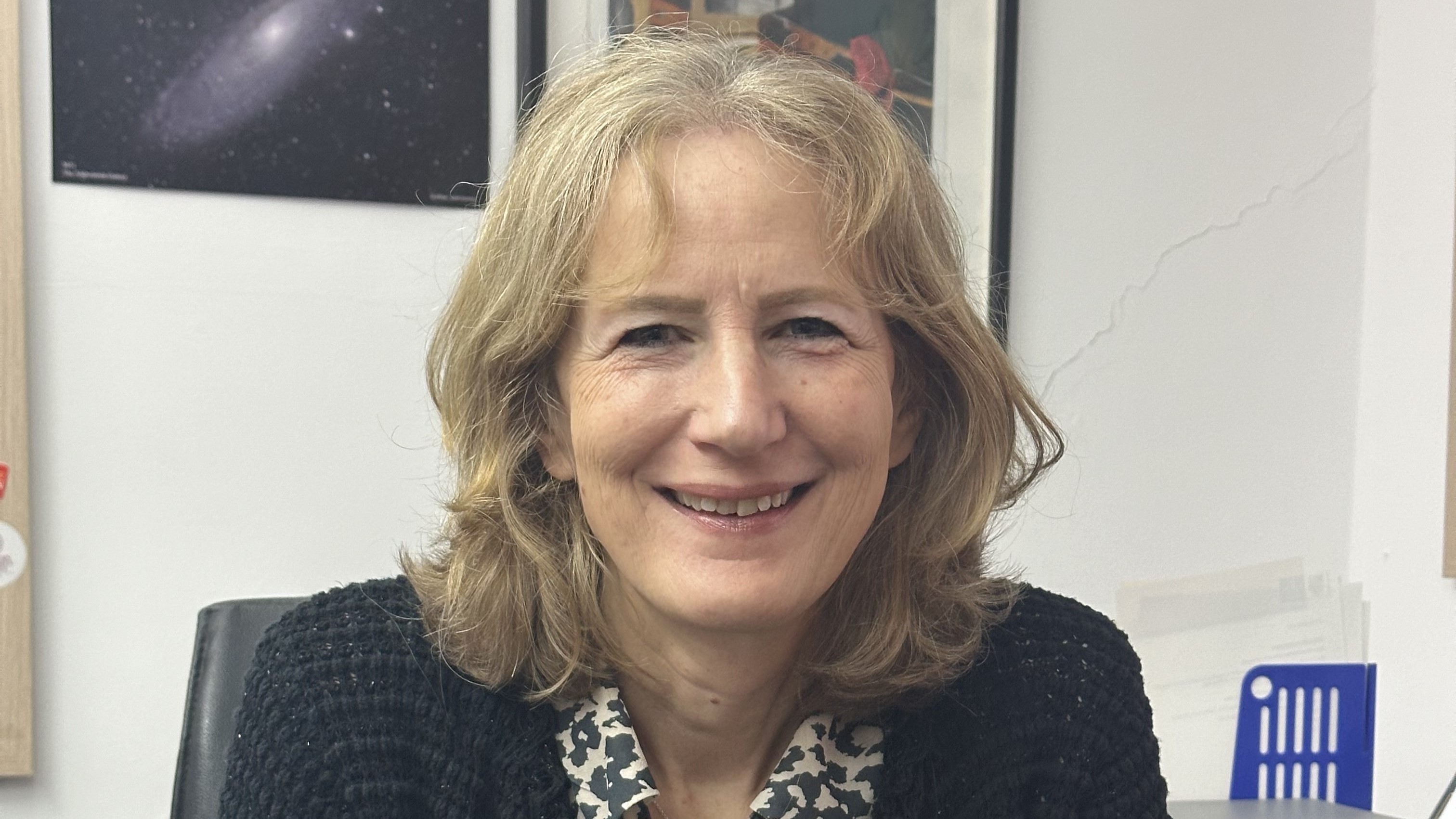How to support students through the Ucas clearing process
When a student does not receive the grades they need for university in the UK, counsellors can support students to ensure that the Ucas clearing process goes smoothly

Results day can be a very emotional and challenging time for students (and parents) receiving exam results – and especially for those students who don’t achieve the grades they need for their firm or insurance choice of university. This year, A-level results day is on 15 August.
A counsellor’s role is pivotal in ensuring that the clearing process goes as smoothly as possible, and that any potential distress for the student is minimised.
Having experienced many clearing days, I think it is on this day that you need to be at your best in terms of being able to provide emotional and practical support, use your in-depth knowledge of UK universities and make the most of your network of connections.
Being empathetic, calm and efficient can help to de-escalate emotional situations, particularly if a student misses an offer for a very competitive course or institution.
What to do before results day
Refresh your knowledge
Make sure you are fully informed about how the process of clearing works – in detail and well ahead of the day.
An excellent place to start is by reading the information offered by Ucas on clearing and confirmation essentials. Even if you are the most experienced counsellor, be sure to refresh your knowledge every year, so that you are aware of any updates or changes in the process.
Make sure your students are prepared
Contact your students ahead of results day and give an overview of how the clearing process works. We advise our students to make a preliminary list of universities or courses they might be interested in, should they need to act quickly on the day.
Students should be encouraged to read the dedicated clearing section on university websites and research available courses. It is important to understand that the information about available places is dynamic and will usually update on results day. Clearing information can change rapidly during this period, as offers are made.
Advise students to have scanned copies of their exam certificates and their passport with them if they come to school on results day, so that these can be submitted promptly when required.
Understand the significance of fee status
It is very important that students and counsellors understand the significance of fee status with regard to clearing places.
Usually there are more places available in clearing for international students, so if students have home-fee status, they need to be careful not to waste time chasing places that are designated for international students only.
For EU students who are trying to find universities with lower fees, it is useful if counsellors have a list of universities still offering the equivalent of home fees or more generous bursaries for these students.
Familiarise yourself with each student’s offer
It is useful to familiarise yourself with each specific student and the details of their firm and insurance offers, so that you can act swiftly if any issues arise with their exam results.
Sometimes mistakes occur when the results are processed by the university and a student may not have their place confirmed even though they appear to meet their conditional offer. This situation may arise if results are sent in at different times prior to results day, such as an A-level examination that has been taken in a different sitting or a school leaving certificate. Alternatively, it may be that the university has not received the student’s English language certificate or something else they are waiting for.
In such cases, it is imperative that you contact the admissions office urgently to get the error sorted. It is always best to put the problem in writing (and attach any certificates that might be missing) to the admissions team before calling the university helpline to try to sort it out.
In cases such as these, it is helpful if the counsellor has been named for nominated access on the Ucas application (found under the contact and residency details). This can also be added or updated after an application has been sent to Ucas.
Compile a list of universities in advance
It is advisable to make a general list of universities you think might be useful to contact for your students, so you have their clearing hotline numbers and opening hours ready to use on the day.
Use your network: often schools have very good links with specific universities and may have a dedicated schools line or specific person you can contact in clearing – so it is helpful to obtain this information ahead of time and distribute it to your team.
What to do on results day
Check results early
Make good use of your time at 07.00 (UK time) on results day and log into the Ucas Adviser Portal to ascertain which students have had their places confirmed, who is pending confirmation and who has been entered into clearing.
Check that this matches your records so you can detect if there are any obvious mistakes. You are not allowed to release any of this information to students or parents prior to 08.00 (UK time) on results day, because of the embargo arrangement.
Create a calm, organised environment
It is important to create a calm and organised environment for students and parents who visit your office.
Depending on the size of your team, it is useful to greet people, assess each situation and offer a preliminary summary of options available before you begin to call universities. We usually assign students to a specific counsellor, who will work with them throughout the day.
Encourage students to think flexibly
In some cases, it is relevant to advise students about the flexibility of the clearing process and encourage them to think about a slightly different course (or in some cases a completely different course) if their exam results illustrate that they might be better suited to a different direction.
How to contact universities
It can be very helpful to fill in online clearing applications where available, as these can save time. Alternatively, use live-chat options, as these can be done while you are on the phone to other institutions.
Calling universities can be very time-consuming, so it is useful to identify students or parents who can assist with this process.
Students should be encouraged to speak directly to universities. However, if they are too stressed to do this, it is helpful if you have their application details ready before you speak to institutions on their behalf.
We often suggest first contacting the other universities the students initially applied to through Ucas, because they have already preselected these universities and researched them thoroughly. It helps to have a starting point they feel comfortable with.
Take notes
Keep a detailed written record of who you speak to and their phone numbers, as this can often come in handy if you need to follow anything up.
Often you will be given additional phone numbers to contact during conversations with the clearing hotline.
Check offers very carefully
Once students have obtained clearing offers verbally, and then in written form, they need to understand that they can enter only one clearing choice in Ucas, and only from 13.00 UK time on results day.
Students should check the offer emails very carefully, so they do not miss any deadlines for entering the offer of their choice.
Sometimes, when students are waiting for multiple offers, they may need to ask if they can extend a deadline, and usually universities agree to this – but it is imperative that they ask and get the extension in writing.
Following up with students
As this process is stressful and unfamiliar to students, it is advisable for the counsellor to follow up closely with each student. This could include assistance in adding the choice on Ucas if required and then making sure that the clearing choice is accepted by the institution.
Students are often required to send universities information or documents to ensure that their place is updated in Ucas, so make sure students are aware that they must deal with requests for information promptly.
Managing stress
Often a change of university or destination city at such a late stage can cause immense stress to students and their parents, which is where you can offer reassurance about the institution and its location.
It is helpful to put students in contact with alumni who have attended that particular university, as they can answer any queries.
Sometimes it is also helpful to put your students in touch with alumni who were placed via clearing and have then graduated successfully, as this can boost a student’s confidence if it has been knocked by their results and by being rejected from their chosen universities.
You can also draw on your network of university staff who can assist with queries. Students can be directed to specific university societies so they can meet other students from their country, if this is important to them.
The counsellor’s role
A counsellor’s role in this process is to ensure that the appropriate information is available to students in a comprehensive and clear manner, and to guide students through it in a supportive and encouraging way.
To do this, you need to be thoroughly prepped on how the Ucas clearing process works, and see that each student is placed in most suitable institution according to their ambitions and needs.




